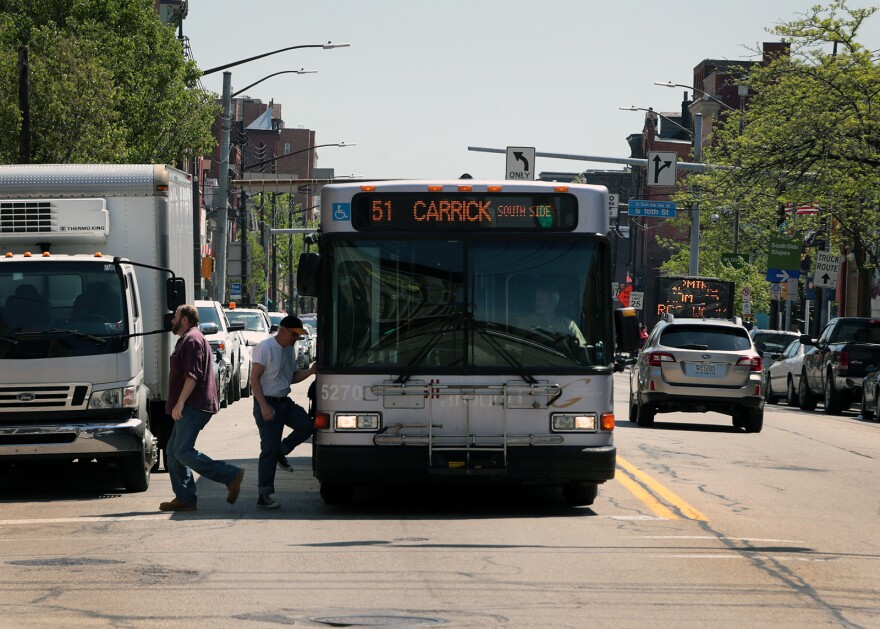Port Authority of Allegheny County expects to start service of bus rapid transit, or BRT, by 2022, and hopes to secure $99.5 million in federal funding to do so.
The Federal Transit Administration has awarded Port Authority’s BRT project high ratings since the agency first submitted its application for federal dollars in 2017. Authority officials say the FTA appointed a project manager to their application, and take that as a good sign. BRT will link Downtown, Uptown and Oakland before branching off to serve Highland Park, parts of Greenfield and some eastern suburbs such as Rankin, Braddock and Duquesne.
Port Authority CEO Katharine Kelleman said the retooled plan, submitted Aug. 23, allows the authority to implement BRT without fully rebuilding Fifth and Forbes Avenues, as originally planned.
“Keeping these tied together meant we were either going to make BRT wait a really long time or we were going to rush a rebuild,” she said. “When you’re rushing something with utilities that date back to the 19th century, what could happen?”
The project is expected to cost between $225 and $230 million, and plans for amenities such as separate bike lanes, new shelters and smart traffic lights to more quickly usher buses through traffic. Authority officials expect to find out about the federal Small Starts grant by early next year. If the requested amount is awarded, the remaining $130 million will be made up by county and city capital dollars, as well as other state and federal grants.
Moving people more quickly to Oakland and Downtown is just one project to reduce congestion and improve reliability across the system. Efforts to improve access to transit and eliminate lesser-used bus stops are also crucial, said David Huffaker, the agency’s chief development officer.
“Any way that people can access the system without driving a car is a win for everyone,” he said.
To establish context for that work, the agency recently completed an evaluation of transit stops along the T, the inclines, and the busways to better understand why some stops may be difficult for riders to access. That report, the First and Last Mile Program Plan, will be posted to the authority’s website soon.
The improvement efforts come as Port Authority's short-term financial picture begins to look a little rosier.
With the resolution of a lawsuit against the Pennsylvania Turnpike, PennDOT was able to restore funding to transit agencies across Pennsylvania; Port Authority’s 2020 capital budget will be $230 million instead of $58 million. However, that turnpike funding will run out in 2022, just as BRT goes live.
Kelleman said while state funding is very important to the Port Authority, it's not the only funding source the agency has to pay for system improvements.
"We need to bring [all funding sources] together to create the transit system that Allegheny County deserves and needs, to be competitive in the future," she said.




